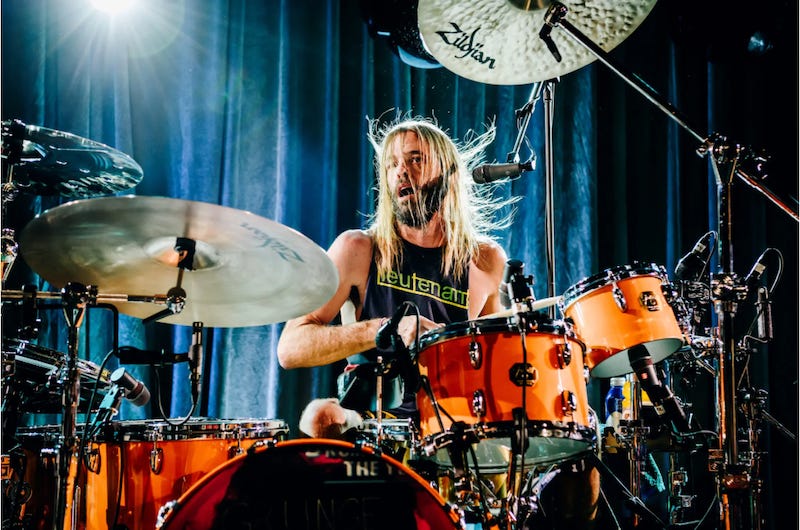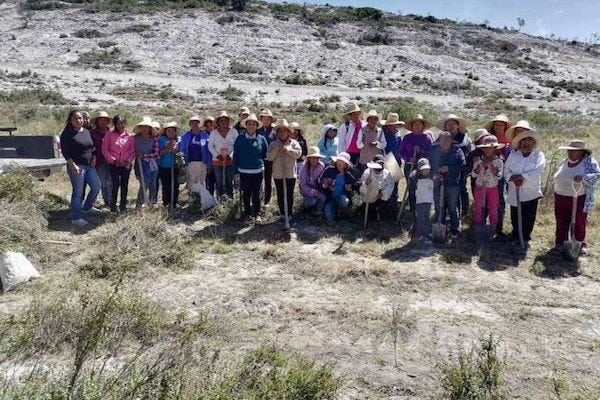The Weird Times: Issue 98, March 27, 2022 (V2 #46)
“What happens to make people into such hardened, relentless, mercilessly self-destructive idiots? What do you even do with them, except wave goodbye, as you watch them walk off the nearest cliff, telling you they’re going to fly?”—Umair Haque
“According to Republicans, the words “rubbers,” “abortion” and “homosexual” aren’t in the Constitution, so they want to overturn the rights to gay sex, gay marriage, interracial marriage and contraception. Bye-bye 21st Century, hello 1950.”—Lucian K. Truscott IV
"The enemy is not liberalism; the enemy is not conservatism; the enemy is bullshit.” —Lars Eric Nelson (thanks to Malcolm Margolin for sharing this great line)
“We want to live, but our neighbors want to see us dead. It doesn’t give us much room for compromise.”—Volodomir Zelensky
“It is ESSENTIAL to such a government that it be derived from the great body of the society, not from an [small] proportion [of people], or a favored class of it….”—James Madison, Federalist #39
Now I'm lookin' to the sky to save me
Lookin' for a sign of life
Lookin' for somethin' to help me burn out bright
I'm lookin' for a complication
Lookin' cause I'm tired of tryin'
Make my way back home when I learn to fly high
Make my way back home when I learn to
Fly along with me, I can't quite make it alone
—from “Learn to Fly” by Taylor Hawkins, Nate Mendel, David Eric Grohl
War is not the Answer (but what is?)
A Nation Worth Fighting For: Ukraine claims something more than sympathy from the democratic world. It claims membership, David Frum, The Atlantic, 3/22/22: “In Ukraine, a new national myth is being created. It’s a myth of collective resistance to violent foreign tyranny, of a citizen army fighting for European liberal and democratic values.”
The Devastation of Kharkiv, Ukraine: Russian attacks have terrorized the civilian population in the Ukrainian city, Masha Gessen, New Yorker, 3/22/22
"Putin Lives in Historic Analogies and Metaphors" Political scientist Ivan Krastev is an astute observer of Vladimir Putin. In an interview, he speaks of the Russian president's isolation, his understanding of Russian history and how he has become a prisoner of his own rhetoric, Interview by Lothar Gorris, Spiegel International, 3/17/22
Losing Wars and Saving Face, Lawrence Freedman, Comment is Freed, 3/25/22: “Whatever the prompts, in the end, the major concessions necessary to end this war must come out of Moscow…”
Putin's war and the Chaos Climbers: Why pro-Russia narratives are uniting -- and exposing -- all the worst people, Noah Smith, Noahpinion, 3/21/22
How gerrymandering allows a purple state to promote Trump’s big lie: Wisconsin Republicans emboldened by untouchable majority in state legislature are promoting extreme antidemocratic laws, Sam Levine, The Guardian, 3/24/22
These six corporations are financing an assault on reproductive rights in six states, Judd Legum, Tesnim Zekeria, Rebecca Crosby, Popular Information, 3/24/22. CVS, AT&T, Merck, Comcast, UnitedHealth, Anheuser-Busch. Ed.: Shameful? Tell them to stop or else we stop buying from them.
GOP grandstanders aren’t the only reason Jackson’s confirmation hearings were so disgraceful, Jennifer Rubin, Washington Post, 3/23/22: “The only thing more stunning than the off-the-rails Republican badgering and constant interrupting of Ketanji Brown Jackson at her Supreme Court confirmation hearing on Wednesday was the utterly inaccurate and inapt media coverage.”
An Argument for Requiring Americans to Vote: on Voting as Public Responsibility, E.J. Dionne Jr., Miles Rapoport, LitHub, 3/24/22: “If every American citizen is required to vote as a matter of obligation, the representativeness of our elections would increase.”
The real – and far scarier – reason Republicans think Biden is illegitimate: Many conservatives don’t think the 2020 election was stolen. But they believe democracy itself has betrayed America, by allowing the ‘wrong’ people to take charge, Thomas Zimmer, The Guardian, 3/21/22
Senator Mike Braun Claims He Didn’t Mean to Say States Should be Able to Ban Interracial Marriage, Despite Saying it Multiple Times: Mike Braun’s position seems extremely clear, Bess Levin, Vanity Fair, 3/23/22
Legal Scholars Are Shocked By Ginni Thomas’s “Stop the Steal” Texts: Several experts say that Thomas’s husband, the Supreme Court Justice Clarence Thomas, must recuse himself from any case related to the 2020 election, Jane Mayer, The New Yorker, 3/25/22
How the false Russian biolab story came to circulate among the U.S. far right, Bill Chappell, Odette Yousef, NPR, 3/25/22
Kulchur
“I pretend death doesn’t exist.” New Poetry From Ukraine by Iryna Shuvalova, translated by Amelia Glaser and Yuliya Ilchuk, LitHub, 3/24/22
I pretend death doesn’t exist
but death is coming and death is buzzing
over plum trees over cherries and quince
the ruthless stinging of metal bees
spring is coming it’s already spring in nanjing
the columns move toward kyiv military columns
I read the news feed
‘Legends are to be told’: Colombian library goes beyond books to keep stories alive: The award-winning Kankuaka library opened with one box of books. Now it is reconnecting indigenous youth with their past through oral histories, gatherings with elders and workshops, Genevieve Glatsky, The Guardian, 3/21/22
Machu Picchu: Inca site ‘has gone by wrong name for over 100 years:’ Peruvian historian and US archaeologist say the pre-Columbian town was called Huayna Picchu by the Inca people, Dan Collyns, The Guardian, 3/23/22
Portraits on the Wall: In this photograph of Barbara and Beverly Smith of the Combahee River Collective, the framed pictures reflect an endless cascade of black women’s intellectual labor and political action, Tiana Reid, Dissent, Winter 2022

A 1986 dystopian Russian novel basically predicted Vladimir Putin, George Bass, Washington Post, 3/21/22: “The writer was Vladimir Voinovich, and his novel was “Moscow 2042,” a dystopic satire about a man who takes a journey into the next century.”
Losing Farther, Losing Faster: Reading Elizabeth Bishop's "One Art" While Trying to Save My Native Language, Natalie Diaz, Best American Poetry, 3/24/22: “I choose not to stare into the void of loss, but instead I step inside it, stick my fingers into it, put my ear to it, try to find as many words for it as I can.”
Stanley Nelson’s Lifetime of Documenting Black Experience: The filmmaker discusses the film he co-directed about the Attica prison uprising, how he got his start, and what it takes to nurture the careers of younger artists, Hua Hsu, New Yorker, 3/20/22: “I think most people have to understand that the civil-rights movement was not made up of Martin Luther King, Jr., and Malcolm X—it was made up of the people that were walking behind them.”
‘It’s a culture war that’s totally out of control’: the authors whose books are being banned in US schools, From Art Spiegelman to Margaret Atwood, books are disappearing from the shelves of American schools. What’s behind the rise in censorship? Claire Armitstead, The Guardian, 3/22/22
“We’re Going to Be Conservative.” Official Orders Books Removed From Schools, Targeting Titles About Transgender People: The North Texas superintendent’s comments, made on a leaked recording, raise constitutional concerns, legal experts said, Jeremy Schwartz, Mike Hixenbaugh, ProPublica, 3/23/22
What to Do When Your Kid Is Reading a Book That Makes You Uncomfortable: The author of a memoir banned in schools across America on the value of teens reading challenging work, Dan Kois, Slate, 3/22/22
ALA Poll Finds Public Broadly Opposes Book Banning Efforts, Andrew Albanese, Publishers Weekly, 3/25/22: “The 71% who oppose efforts to have books removed from their local public libraries includes majorities of Democrats (75%), independents (58%), and Republicans (70%).”
Workplaces are in denial over how much Americans have changed: Employers are trying desperately to ignore that we’ve become fundamentally different humans, Alvin Chang, The Guardian, 3/21/22
Alexis 'Scrappy' Hopkins becomes first woman to be drafted by a professional baseball team, Jack Bantock, CNN, 3/25/22
Meet the Bike Man who brought the trucker convoy to a crawl, Ellie Silverman, Washington Post, 3/26/22: “D.C. is always open to protest, but these are our streets too. ... people power is always stronger than horsepower.”
How fairy tales shape fighting spirit: Ukraine’s children hear bedtime stories of underdog heroes, while Russian children hear tales of magical success, Mia Bloom, The Conversation, 3/23/22
Why Good Bookstores Might Not Actually Be “Stores” Jeff Deutsch in Conversation with Andrew Keen, LitHub, 3/24/22 (Ed. Note: I interviewed Jeff for Writerscast in 2021)
17 Poetry Collections to read during Women’s History Month, Camille T. Dungy, Orion, 3/24/22
Five walks to save the world – how ‘psychogeography’ can help you confront the climate crisis, Phillippa Holloway, The Conversation, 3/24/22: “Walking mindfully – taking time to observe your surroundings and the thoughts and feelings they evoke – can help you see familiar spaces like your own street anew. This can make you more aware and appreciative of them, perhaps igniting a desire to protect them in turn.”
Science and the World
At Peak of Its Wealth and Influence, Arizona’s Desert Civilization Confronts A Reckoning Over Water: State’s powerful will to grow is challenged by extreme heat, deep drought, and serious water-related stress, Keith Schneider, Circle of Blue, 3/14/22 Unsafe Yield: Severe drought, dead wells, political division push Arizona steadily closer to water supply peril, Keith Schneider, Circle of Blue, 3/21/2022 (The Biggest Dry: Arizona, second of three reports.)
Hudson River rise is here. How nature will (and won't) adapt, Roger Hannigan Gilson, Times-Union, 3/20/22
New research finds plankton may have unexpected resilience to warming ocean waters, Fred Bever, WBUR, 3/23/22
Protecting the beasts of the land and sea could help fight climate change: A comprehensive review of the scientific literature finds three major places where large animal conservation and climate mitigation goals intersect, Sarah DeWeerdt, Anthropocene, 3/23/22
For Intel on This Rare Carnivore, See the Hoopa Valley Tribe: Tribal wildlife techs have been meticulously tracking and studying fishers since 2006, Elizabeth Miller, Mother Jones, 3/26/22
The ‘hot hand’ is a real basketball phenomenon – but only some players have the ability to go on these basket-making streaks, Konstantinos Pelechrinis, The Conversation, 3/22/22:
Biden Administration Drafting Order to Invote Defense Production Act for Green Energy Storage Technology: A draft of the executive order obtained by The Intercept would use the Defense Production Act to ramp up mineral production for electric car batterie, Nausicaa Renner, Austin Ahlman, The Intercept, 3/24/22
Study shows that intranasal Rx halts memory decay in experimental Alzheimer’s model, LSU Health Sciences, Science Daily, 3/21/22
Stanford engineers develop a stretchable display that could revolutionize how humans interact with electronics: After discovering a groundbreaking way to create an elastic light-emitting polymer, Stanford chemical engineers have developed high-brightness, stretchy color displays, McKenzie Prillaman, Stanford News, 3/23/22
Microplastics found in human blood for first time: The discovery shows the particles can travel around the body and may lodge in organs, Damian Carrington, The Guardian, 3/24/22
Wolverine fish and blind eel among 212 new freshwater species: Report from Shoal on 2021’s newly described species shows ‘there are still hundreds and hundreds more freshwater fish scientists don’t know about yet,’ Graeme Green, The Guardian, 3/24/22
Oink, oink: scientists decode pig emotions from their sounds: Analysis of vocal expression of emotions is being increasingly used as a tool to assess pigs’ welfare, study finds, Maya Yang, The Guardian, 3/22/22
Scientists Watch a Memory Form in a Living Brain: While observing fearful memories take shape in the brains of fish, neuroscientists saw an unexpected level of synaptic rewiring, Yasemin Sapakoglu, Wired, 3/20/22
The deceptively simple plan to replenish California’s groundwater: The state pumps too much groundwater, especially during droughts. Now, it's learning to refill the overdrawn bucket. "It's the simplest math in the world," says one scientist, Alejandra Borunda, National Geographic, 3/23/22
Read of the Week: If you only have time to click through to one piece in TWT, this is it: Energy efficiency guru Amory Lovins: ‘It’s the largest, cheapest, safest, cleanest way to address the crisis,’ Jon Vidal, The Guardian, 3/26/22: “We have a new energy crisis, and efficiency is the largest, cheapest, safest, cleanest and fastest way to address it.”
How Putin’s War Is Fast Changing Our Energy Future: Seven emerging realities that will alter our lives as global connections fray, Andrew Nikiforuk, The Tyee, 3/24/22
Kids born in 2020 may live through about 7 times as many heat waves as their grandparents: An online tool is designed to help people understand how climate change could affect different generations, YCC Team, Yale Climate Connections, 3/22/22
Alaska’s Sea Otters Have Individual Eating Habits: Sea otters don’t all eat the same things—which makes it more difficult to deduce their effect on prey species like crabs and clams, Robin Donovan, Hakai, 3/21/22
Indigenous communities transform a Mexican desert landscape into forest, Juan Mayorga, MongaBay, 3/23/22: ““We are restoring because we know that it would be difficult to restore left on its own. But that doesn’t mean this stops with our intervention. Nature itself will follow. We just have to give her a push.”
What is the new COVID-19 variant BA.2, and will it cause another wave of infections in the US? Pragash Nagarkatti, Mitzi Nagarkatti, The Conversation, 3/22/22: “Whether there will be another devastating surge depends on how many people are vaccinated or have been previously infected with BA.1.”
The 1918 pandemic mistake that changed medicine forever: A misunderstanding about the microbe that actually causes the flu created a ripple effect that changed the future of U.S. drug development, clinical trials, and pandemic preparedness, Jen Pinkowski, National Geographic, 3/23/22
Swab, test, repeat: A 2nd rapid COVID test more than doubled result accuracy: Study puts some numbers to the benefits of serial testing in people without symptoms, Beth Mole, Ars Technica, 3/22/22
Birdland
Many bird species nesting and laying eggs nearly a month early, study says: Heating of the atmosphere, due to the burning of fossil fuels, is seemingly upending a process that long appeared unshakeable, Oliver Millman, The Guardian, 3/25/22
Ostrich necks act as a radiator to control their head temperature: Infrared images of ostrich necks show that they help the birds keep their heads cool in warm temperatures, lowering their heat stress and helping them reproduce more successfully, Jake Buehler, New Scientist, 3/25/22
Farms With Natural Habitat Gain More Benefits From Birds: A study finds that weaving wild patches into farmland can attract more beneficial species, reducing crop damage and risks to food safety, Spoorthy Raman, Audubon, 3/23/22
Birthdays: 3/27: Frank O’Hara, Budd Schulberg; 3/28: Fred Exley, Nelson Algren; 3/30: Paul Verlaine; 3/31: Marge Piercy; 4/1: Sam Delaney; 4/2: Emile Zola
This week, I was interviewed by Craig Constantine for his Podcast Community program, where I got to talk about my 15 years of podcasting at Writerscast and also Livewriters and how similar podcasting and book publishing are from a creator and publisher’s perspective.
Book of the Week: Dreamland Court, a novel by Dale Herd – “the characters themselves seem to write themselves and their stories into existence, and so authentically they continue to live in my consciousness long after I reached the end of the book, which I was sorry to.”--Michael Lally
Via Timothy Snyder, trusted Polish NGOs that have been helping Ukrainian refugees:
Fundacja Ocalenie, and their donation page
Polish Humanitarian Action, and their donation page
Club of the Catholic Intelligentsia, and their donation page
Some readers have fairly complained that in recent issues of TWT there has been too much text and not enough visuals. The Substack platform has a strict limit for newsletter length and images count for more than text, so every week, when I get the message that the newsletter is too long to email, the easiest cuts to make are of illustrations. There are at least two possible solutions. I could cut the number of entries I post, which has the advantage of making the newsletter more readable, or I could make and send two versions, a complete collection of entries and a summary version, so readers could choose which they prefer. Since I have not decided which way to go, your opinions and advice are welcome.
Be well all, stay engaged. “Get up, stand up (so we can't give up the fight).”
Love to all—David





